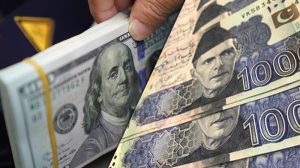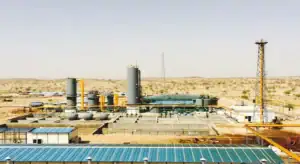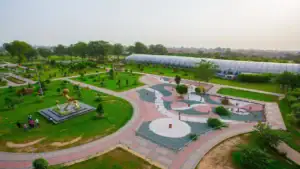ISLAMABAD: Mergers and acquisitions involving multinational corporations in Pakistan reached a total of $148 million (Rs41 billion) during the first eight months (July–February) of fiscal year 2024–25, according to official data.
The surge is attributed to the proactive efforts of the Special Investment Facilitation Council (SIFC), established in June 2023 to streamline investor engagement and fast-track approvals.
According to sources within the government, the country witnessed a 41% increase in foreign direct investment (FDI) during the same period, with net inflows totaling $1.618 billion.
This uptick is largely seen as the result of reduced bureaucratic red tape and improved inter-agency coordination, made possible through SIFC’s centralized facilitation model.
SIFC, launched to function as a “one-window” platform for investors, has been instrumental in driving economic activity by simplifying procedures across sectors such as defense, infrastructure, agriculture, energy, and information technology.
The council’s integrated structure connects various government departments, accelerating decision-making and boosting investor confidence.
According to the State Bank of Pakistan, the 41% rise in FDI for 8MFY25 is primarily due to SIFC’s robust facilitation and its ability to swiftly address investor concerns.
As a result, foreign capital has flowed into several key sectors, with M&A transactions totaling $148 million—a figure that reflects renewed global interest in Pakistan’s market.
Key M&A Transactions Facilitated by SIFC:
Aramco Asia acquired a 40% stake in GO Petroleum, signaling the Saudi giant’s entry into Pakistan’s fuel retail market.
MNT–Halan, Egypt’s largest digital lender, took over Advans Pakistan Microfinance Bank, boosting financial inclusion and fintech competition.
Italian-based Euricom SPA acquired 50% ownership in Fatima Euricom Rice Mills (Pvt) Ltd, showing growing interest in Pakistan’s agri-sector.
Aquashore SA, affiliated with Swiss-based Gunvor Group, obtained a 50% stake in Total Parco Pakistan Ltd, expanding its energy portfolio in the country.
Wafi Energy Holding Limited and Asyad Holding from Saudi Arabia acquired 77.42% shareholding in Shell Pakistan Limited, reinforcing economic ties with Gulf nations.
Bazaar Technologies, a leading B2B e-commerce startup, raised over $100 million from local and international investors and acquired 100% ownership of Wemsol (Pvt) Ltd, strengthening its presence in the fintech landscape.
A joint venture between National Logistics Corporation (NLC) and DP World Logistics was also finalized, with NLC holding 60% ownership to enhance Pakistan’s logistics infrastructure.
All these deals received timely regulatory clearance from the Competition Commission of Pakistan (CCP), which played a crucial role in facilitating swift closures and maintaining compliance.
Read More: SBP Grants Approval for Silk Bank’s Merger with UBL
Broader Investment Strategy and Vision
As part of its long-term strategic vision, SIFC has placed special emphasis on the mineral sector, aiming to position Pakistan as a global mining destination.
To this end, the Pakistan Mineral Investment Forum 2025 was held in Islamabad on April 8–9, bringing together global investors and policymakers.
Multiple MoUs were signed, setting the stage for further collaboration, innovation, and capital inflows into the mining industry.
The establishment of SIFC is widely seen as a game-changer for investor facilitation in Pakistan.
By cutting red tape, fostering transparency, and enhancing inter-governmental cooperation, the Council is laying the groundwork for a sustainable investment ecosystem.
Future Outlook
SIFC is currently targeting $5 billion in FDI in the short term, with a long-term goal of attracting $100 billion.
The Council’s broader vision includes raising Pakistan’s nominal GDP to $1 trillion by 2035—a goal that hinges on continued policy reforms, investor-friendly initiatives, and improved security.
Also Read: SIFC Drives $148M in Mergers and Acquisitions, Boosts FDI to $1.6B in FY2024-25
With investor confidence on the rise and critical reforms underway, Pakistan appears to be entering a more stable and investment-driven phase, offering a wealth of opportunities for both regional and global partners.









